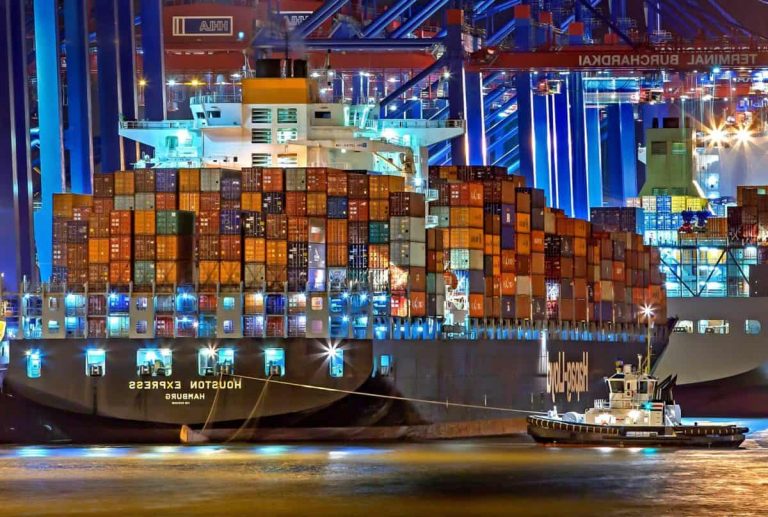
The global container market is likely to enjoy a strong year ahead, but the balancing act between vessel oversupply, scrappage rate, oil market volatility, rising protectionism and geopolitical conflict remain as barriers to sustained profitability for carriers.
Despite a capacity surplus in the container market, new orders are being received. The Mediterranean Shipping Company (MSC), CMA CGM and COSCO are booking more than thirty 22,000 teu new vessels, where the first are expected for delivery in 2019.
Samsung Heavy Industries, Hyundai Heavy Industries and Daewoo Shipbuilding & Marine Engineering, four of the largest shipbuilders are bullish amid a spate of new orders and their share prices have surged since January.
The bullish market has been proven wrong in the past which has caused the current surplus in the market and the plummeting of vessel prices.
In March last year, the Hammonia Grenada was sold for scrap at the reported price of USD $5.50m, but it was commissioned only seven years earlier in 2010 at the price around USD $60m.
The simple reason is the oversupply of vessels brought about by a decade of monetary easing, low interest rates and poor market foresight.
The profitability of the vessel market is largely dependent on the health of the global economy which is expected to grow in 2018. The International Monetary Fund (IMF) and the World Bank are bullish, they believe tax reforms in the US will stimulate the US economy, China likely to enjoy sustained growth while Europe has finally rebounded from a decade of stagnation.
Despite optimism, the World Bank believes 2018 to be a short-term upswing and growth to slow down in the years ahead. The growth in protectionism, the continued possibility of a trade war between the US and China could severely hamper the global economy and therefore demand for container vessels.
Moreover, underlying the global economy is the crude oil market where the current price is forged by a production cut by OPEC and non-OPEC oil producers to reduce the supply glut and boost their own earnings.
This pact which artificially raises oil prices and therefore the cost of bunker fuels could be further exacerbated by the US Trump Administration, which continues to threaten Iran with sanctions that could limit the Islamic Republic’s ability to export its oil.